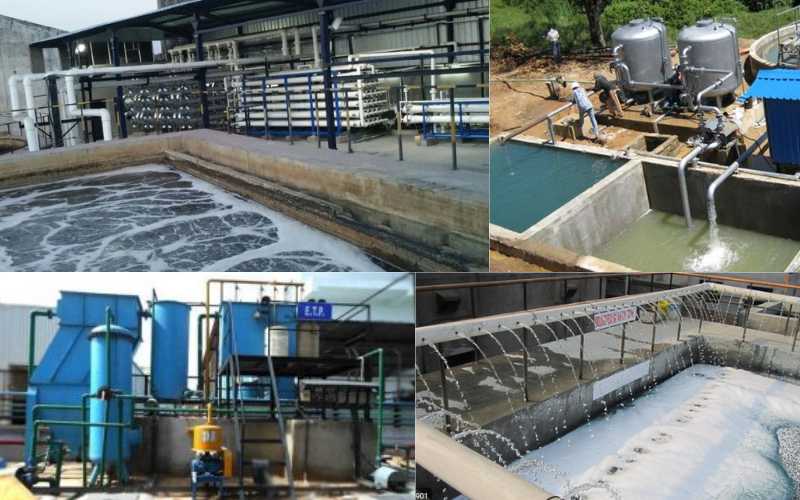Exploring Details of Effluent Treatment Plant in Bangladesh
Bangladesh, a land of vibrant culture and abundant natural beauty, faces a crucial challenge: water pollution. Untreated industrial wastewater, a byproduct of rapid economic growth, casts a long shadow on the nation’s water resources. To combat this threat and ensure a sustainable future, effluent treatment plants (ETPs) emerge as silent heroes, diligently filtering and purifying industrial discharges. Let’s embark on a journey to explore the intricate world of ETPs in Bangladesh, uncovering their design, operation, and impact on the environment and public health.

The Looming Threat for Wastewater Woes in Bangladesh
Water pollution in Bangladesh isn’t a distant worry; it’s a stark reality. Rapid industrialization, particularly in the textile and leather sectors, has led to a surge in untreated wastewater discharge. This murky concoction, laden with harmful chemicals, heavy metals, and organic pollutants, contaminates rivers, canals, and ultimately, the very water we drink. The consequences are dire:
- Degradation of aquatic ecosystems: The toxic cocktail disrupts the delicate balance of aquatic life, harming fish, plants, and the entire food chain.
- Public health hazards: Untreated wastewater poses a serious threat to human health, leading to waterborne diseases like cholera and typhoid.
- Threat to sustainable development: Polluted water hinders agricultural productivity, tourism, and overall economic prosperity.
The Shield of Hope: ETPs to the Rescue
ETPs act as the gatekeepers of clean water, intercepting polluted industrial wastewater before it wreaks havoc. These marvels of engineering employ a series of physical, chemical, and biological processes to remove contaminants, transforming murky effluent into cleaner water.
ETP design in Bangladesh is a meticulous process, considering factors like industry type, wastewater characteristics, and desired effluent quality. Common treatment methods include:
- Physical treatment: Screening, grit removal, and sedimentation remove large solids and suspended particles.
- Chemical treatment: Coagulation and flocculation clump together smaller particles for easier removal.
- Biological treatment: Microorganisms like bacteria break down organic pollutants through natural processes.
- Disinfection: Final disinfection with chlorine or ultraviolet light eliminates harmful pathogens.
ETP operation and maintenance are crucial for optimal performance. Skilled operators ensure proper chemical dosing, sludge management, and equipment upkeep. Regular monitoring of ETP effluent quality against stringent standards like the Environmental Conservation Rules (ECR) 1997 is essential.
A Spectrum of Technologies Choosing the Right Fit
No single ETP design fits all. Different industries and wastewater characteristics demand specific technologies. Here are some popular choices in Bangladesh:
- Upflow anaerobic sludge blanket (UASB) plants: Efficient for treating organic-rich wastewater, particularly in the food and beverage industry.
- Membrane bioreactor (MBR) plants: Offer high-quality effluent suitable for reuse, but require higher energy consumption.
- Sequencing batch reactor (SBR) plants: Provide flexibility for treating fluctuating wastewater volumes.
ETP financing can be a hurdle, especially for small and medium-industries (SMIs). The government offers financial incentives and schemes like the Green Transformation Fund to encourage ETP adoption.
Beyond the Basics the Best Practices and Challenges
Best practices for ETP operation in Bangladesh include:
- Operator training: Equipping operators with proper knowledge and skills ensures efficient operation and minimizes environmental risks.
- Sludge management: Proper sludge disposal is crucial to prevent secondary pollution.
- Energy efficiency: Optimizing processes and using renewable energy sources reduces operational costs and environmental impact.
Challenges and opportunities for ETP development in Bangladesh include:
- Limited awareness: Raising awareness among industries about the benefits and regulations of ETPs is crucial.
- Technological advancements: Adopting advanced, cost-effective technologies can improve treatment efficiency and reduce environmental impact.
- Public-private partnerships: Collaboration between government, industries, and NGOs can accelerate ETP adoption and ensure sustainable water management.
Impact on Water Quality and Public Health
The positive impact of ETPs in Bangladesh is undeniable:
- Improved water quality: Treated wastewater released from ETPs reduces pollution in rivers and canals, contributing to cleaner water resources.
- Enhanced public health: Reduced water pollution translates to a decrease in waterborne diseases, leading to healthier communities.
- Sustainable development: ETPs contribute to sustainable water management, ensuring water availability for future generations and economic growth.
FAQ
Why are ETPs crucial in Bangladesh?
Bangladesh faces major water pollution challenges. ETPs play a vital role by treating industrial waste before it enters rivers and ecosystems, protecting public health and aquatic life.
What are the different types of ETPs used?
The specific type depends on the industry and its waste characteristics. Common options include physical-chemical processes like sedimentation and filtration, or biological treatments using microorganisms.
Are there challenges with ETPs in Bangladesh?
Yes, unfortunately. Proper operation and maintenance are crucial, but resource limitations and lack of awareness can hinder effectiveness. Additionally, enforcing stricter regulations and promoting sustainable practices are ongoing efforts.
What can I do to support clean water in Bangladesh?
Support organizations working on improving ETPs and raise awareness about responsible industrial practices. Choose eco-friendly products and advocate for stricter environmental regulations.